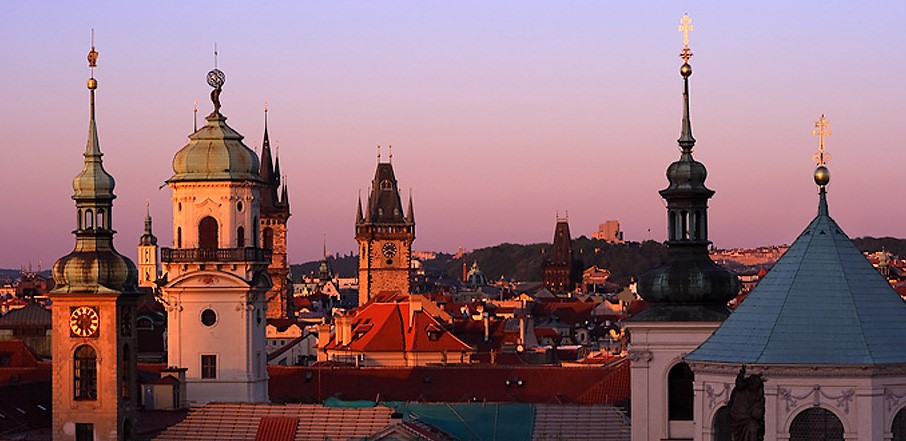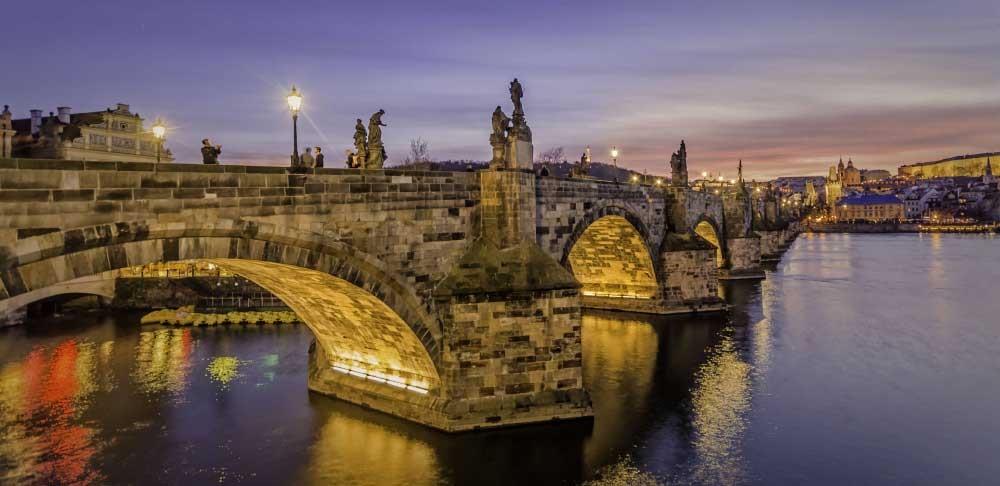PRAGUE
Prague, the capital of the Czech Republic, is situated on the Vltava river in the centre of the Bohemian Basin. Prague has been a political, cultural and economic centre of central Europe complete with a rich history. It is also the largest scientific and education centre in the Czech Republic. Prague has become one of the most popular European tourist destinations (after London, Paris and Rome), the city receives more than 8.5 million international visitors annually.
The historical centre of Prague, which covers an area of 866 hectares, includes a number of world-famous sites like the Prague Castle, Charles Bridge, Old Town Hall with the medieval astronomical clock, the Jewish Quarter, Petřín hill with its 19th century iron tower, and Vyšehrad. Since 1992, the extensive historic centre of Prague has been included in the UNESCO list of World Heritage Sites.
The city is traditionally one of the important cultural centres of Europe, hosting many international events like Prague Spring – the renowned classical music festival – or Golden Prague – the International TV festival.
More about Prague
Prague is a city of very high standards, offering both historical and modern conference venues, hotels, restaurants and places of interest. Prague – the capital of the Czech Republic situated on both banks of the Vltava river is a beautiful city with a rich history. Thanks to its location in the centre of Europe, Prague has always been an important crossroads of trade and culture. In the course of its thousand-year history, Prague has always been the political, cultural, and business centre of the country. Prague, often called “Golden” or “Hundred-spired”, belongs to the architecturally unique European towns, attractive for tourists from around the world. Visitors find themselves enjoying a living museum of European architecture from Romanesque time to the present.

Prague has 1,300,000 inhabitants and stretches over approximately 500 square kilometres. The dominant feature of the city is Prague Castle, which houses the gothic St. Vitus’s Cathedral. The castle had been the seat of Czech kings since 1087, until 1918 when it became the seat of presidents of the Czechoslovak Republic, and since 1993 it has been the seat of the president of the Czech Republic. Prague has one of the oldest universities in Europe; the Charles University which was founded in 1348.
Prague has a designated UNESCO World Cultural and Natural Heritage area of more than 8 sq km, over 100 theatres, concert halls, galleries etc More than 100 personalities famous world-wide have lived in Prague (e.g. King Charles IV, Rudolph II, J. A. Comenius (Komenský), W. A. Mozart, Franz Kafka, A. Einstein, A. Pick, M. Curie-Sklodowski etc…).
With a widely opened pro-market economy, stable democratic government, stable currency and well-known working skills of the people, this country provides a great opportunity to host a conference in order to meet scientists and business people from all over the world.


